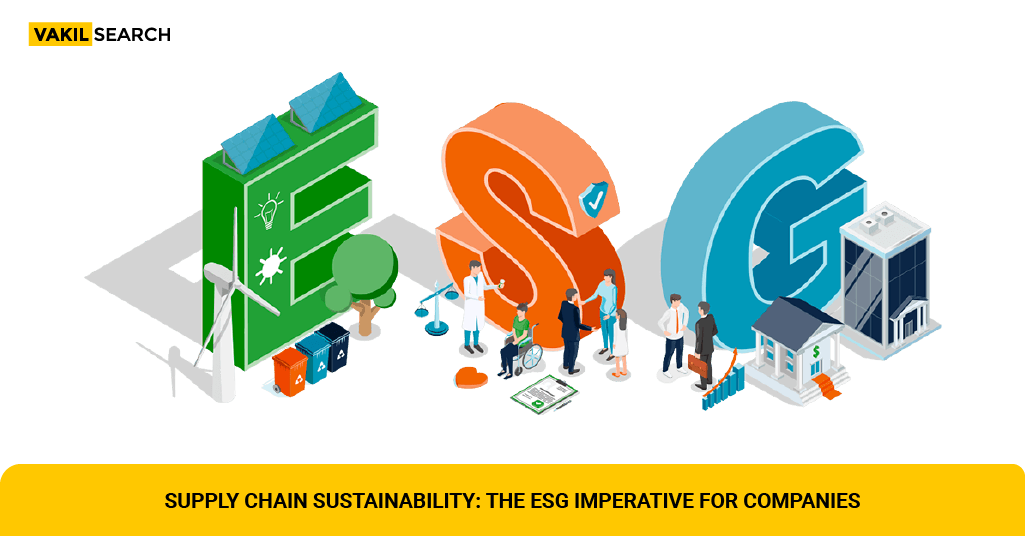Sustainability has become a critical issue for companies worldwide, and supply chain sustainability is one of the most significant challenges they face. With increasing awareness of environmental, social, and governance (ESG) risks, companies need to address these issues across their entire supply chain.
Overview of Supply Chain Sustainability and ESG Imperative
Sustainability has become a critical issue for companies worldwide, and supply chain sustainability is one of the most significant challenges they face. With increasing awareness of environmental, social, and governance (ESG) risks, companies need to address these issues across their entire supply chain. Investors, consumers, and other stakeholders are increasingly focused on ESG performance, and companies that prioritize ESG factors are more likely to attract investment, retain customers, and maintain a positive reputation.
The ESG Imperative refers to the growing demand for companies to prioritize environmental, social, and governance (ESG) factors in their business strategies and decision-making processes. ESG factors refer to a broad range of issues that include but are not limited to, climate change, human rights, diversity and inclusion, labour practices, executive compensation, and board independence.
How are ESG Imperative and Supply Chain Sustainability Connected?
- ESG (Environmental, Social, and Governance) Imperative is about considering environmental, social, and governance factors in business decision-making.
- Supply Chain Sustainability involves implementing environmentally friendly and socially responsible practices throughout the supply chain, such as responsible sourcing, ethical labour practices, reducing carbon emissions, and minimizing waste.
- ESG factors are increasingly being integrated into supply chain management practices to ensure sustainable and responsible business operations.
- Companies that prioritize ESG factors in their decision-making processes are more likely to implement sustainable practices throughout their supply chains.
- Prioritizing environmental sustainability in an ESG strategy can lead to investing in renewable energy, reducing carbon emissions, and expecting suppliers to do the same.
- Prioritizing social responsibility in an ESG strategy can lead to having strict labour standards that suppliers must adhere to, ensuring fair treatment of workers in the supply chain.
- Considering ESG factors in supply chain management can have a positive impact on the environment and society.
The ESG Imperative for Companies in Supply Chain Sustainability
The ESG Imperative is particularly relevant for companies in supply chain sustainability, as they have a responsibility to ensure that their operations and suppliers are sustainable and socially responsible. Supply chain sustainability refers to the management of social, environmental, and economic impacts, as well as risks, throughout the entire supply chain.
Companies that prioritize ESG factors in their supply chain sustainability efforts can achieve a range of benefits, including improved brand reputation, increased customer loyalty, reduced costs, and enhanced innovation. Moreover, they can mitigate risks associated with reputational damage, legal and regulatory compliance, and supply chain disruptions.
To effectively address the ESG Imperative in supply chain sustainability, companies should:
- Set clear ESG goals and targets, and integrate them into their supply chain strategies and performance metrics.
- Conduct ESG assessments and audits of their suppliers, and work with them to improve their sustainability performance.
- Develop sustainable sourcing and procurement practices, such as using renewable energy, reducing waste, and supporting fair labour practices.
- Promote transparency and communication with stakeholders, including customers, investors, and NGOs, about their ESG performance and progress.
- Collaborate with industry peers, governments, and civil society organizations to develop and promote ESG standards and best practices.
Overall, companies that prioritize ESG factors in their supply chain sustainability efforts can create long-term value for themselves and their stakeholders, while also contributing to a more sustainable and socially responsible economy.
Importance of Sustainable Supply Chains
Sustainable supply chains are important for several reasons, including:
- Meeting customer demands environmentally and socially responsible products and services.
- Reducing costs by improving resource efficiency and reducing waste.
- Minimizing supply chain disruptions caused by environmental and social risks.
- Enhancing brand reputation and building trust with stakeholders.
- Challenges in Achieving Sustainable Supply Chains:
While the benefits of sustainable supply chains are clear, achieving them can be challenging. Some of the challenges companies face include:
- Lack of visibility into supplier practices and impacts.
- Limited resources for monitoring and enforcing sustainability standards.
- Resistance from suppliers who may not prioritize sustainability.
- Complex regulatory requirements and standards.
Strategies for Achieving Sustainable Supply Chains in India
Despite the challenges, there are several strategies that companies can use to achieve sustainable supply chains in India, including:
- Collaborating with suppliers to set sustainability goals and improve performance.
- Conducting regular audits and assessments of suppliers’ sustainability practices.
- Adopting sustainability standards and certifications, such as the ISO 14001 environmental management standard.
- Investing in sustainable technologies and practices, such as renewable energy and closed-loop supply chains.
- Engaging with stakeholders, including customers, employees, and local communities, to understand their sustainability priorities and concerns.
Conclusion
In conclusion, supply chain sustainability is no longer just a buzzword; it is now an ESG imperative for companies in India. By addressing the challenges and implementing strategies for achieving sustainable supply chains, companies can improve their environmental and social performance, reduce costs, and enhance their brand reputation and stakeholder trust. The ESG Imperative is driven by the recognition that sustainable business practices are not only good for the planet and society but also good for long-term business success. As a result, many companies are incorporating ESG factors into their corporate strategies, and governments are developing regulations and policies that promote sustainable business practices. The ESG Imperative is transforming the way companies do business, and it is expected to continue to grow in importance in the years to come.
For any more information, our Vakilsearch legal experts will assist you!
Read, More:










